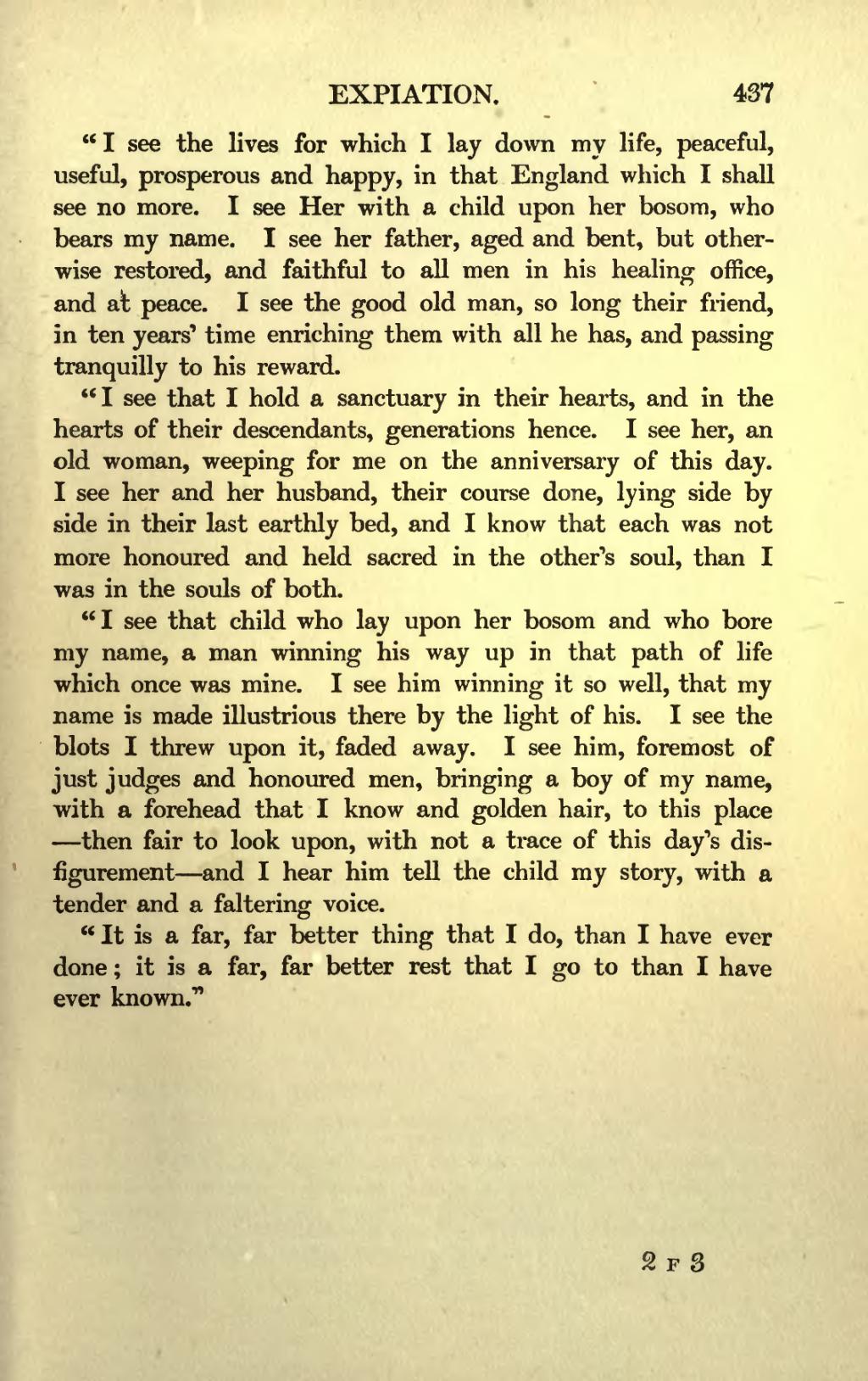"I see the lives for which I lay down my life, peaceful, useful, prosperous and happy, in that England which I shall see no more. I see Her with a child upon her bosom, who bears my name. I see her father, aged and bent, but otherwise restored, and faithful to all men in his healing office, and at peace. I see the good old man, so long their friend, in ten years' time enriching them with all he has, and passing tranquilly to his reward.
"I see that I hold a sanctuary in their hearts, and in the hearts of their descendants, generations hence. I see her, an old woman, weeping for me on the anniversary of this day. I see her and her husband, their course done, lying side by side in their last earthly bed, and I know that each was not more honoured and held sacred in the other's soul, than I was in the souls of both.
"I see that child who lay upon her bosom and who bore my name, a man winning his way up in that path of life which once was mine. I see him winning it so well, that my name is made illustrious there by the light of his. I see the blots I threw upon it, faded away. I see him, foremost of just judges and honoured men, bringing a boy of my name, with a forehead that I know and golden hair, to this place—then fair to look upon, with not a trace of this day's disfigurement—and I hear him tell the child my story, with a tender and a faltering voice.
"It is a far, far better thing that I do, than I have ever done; it is a far, far better rest that I go to than I have ever known."
